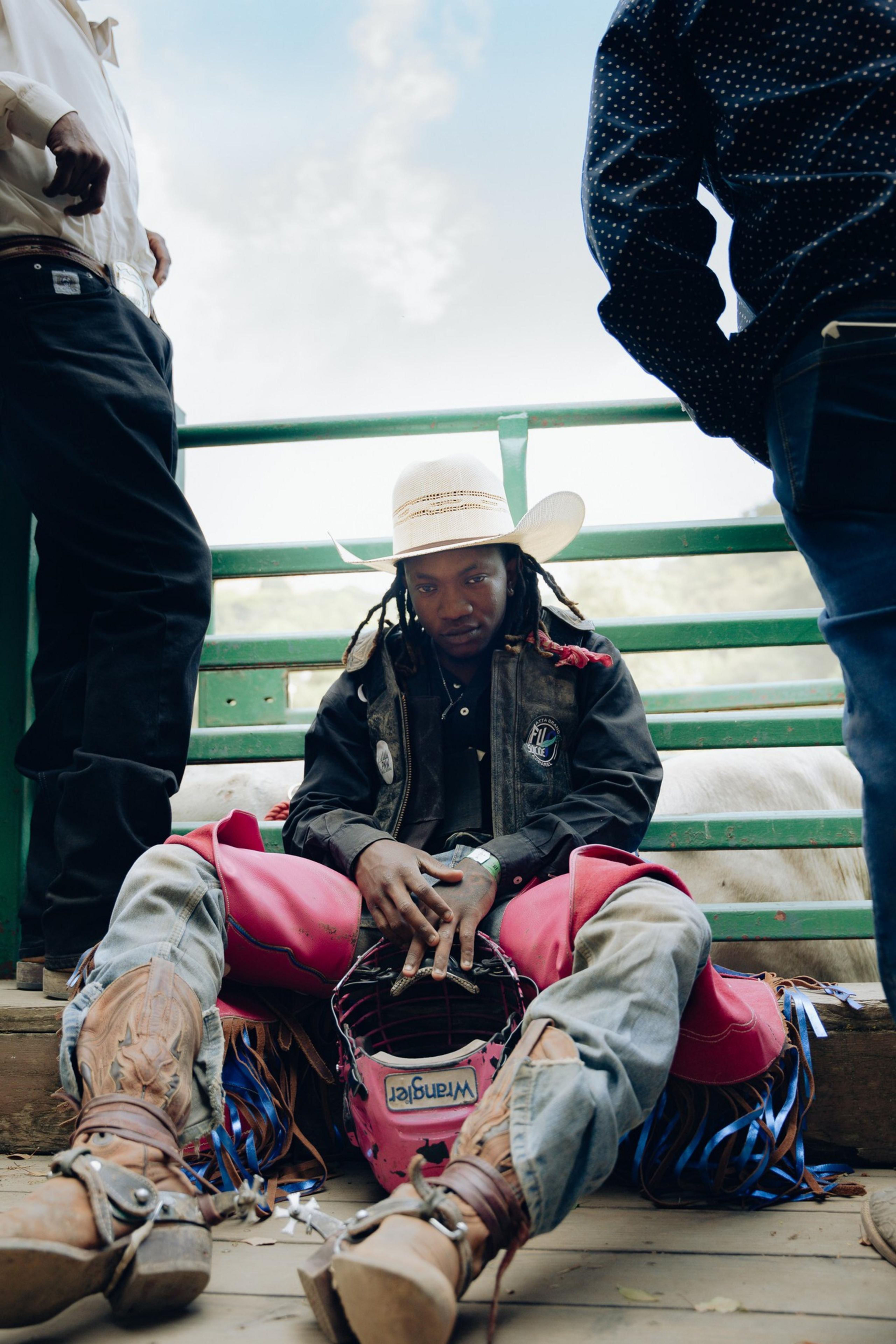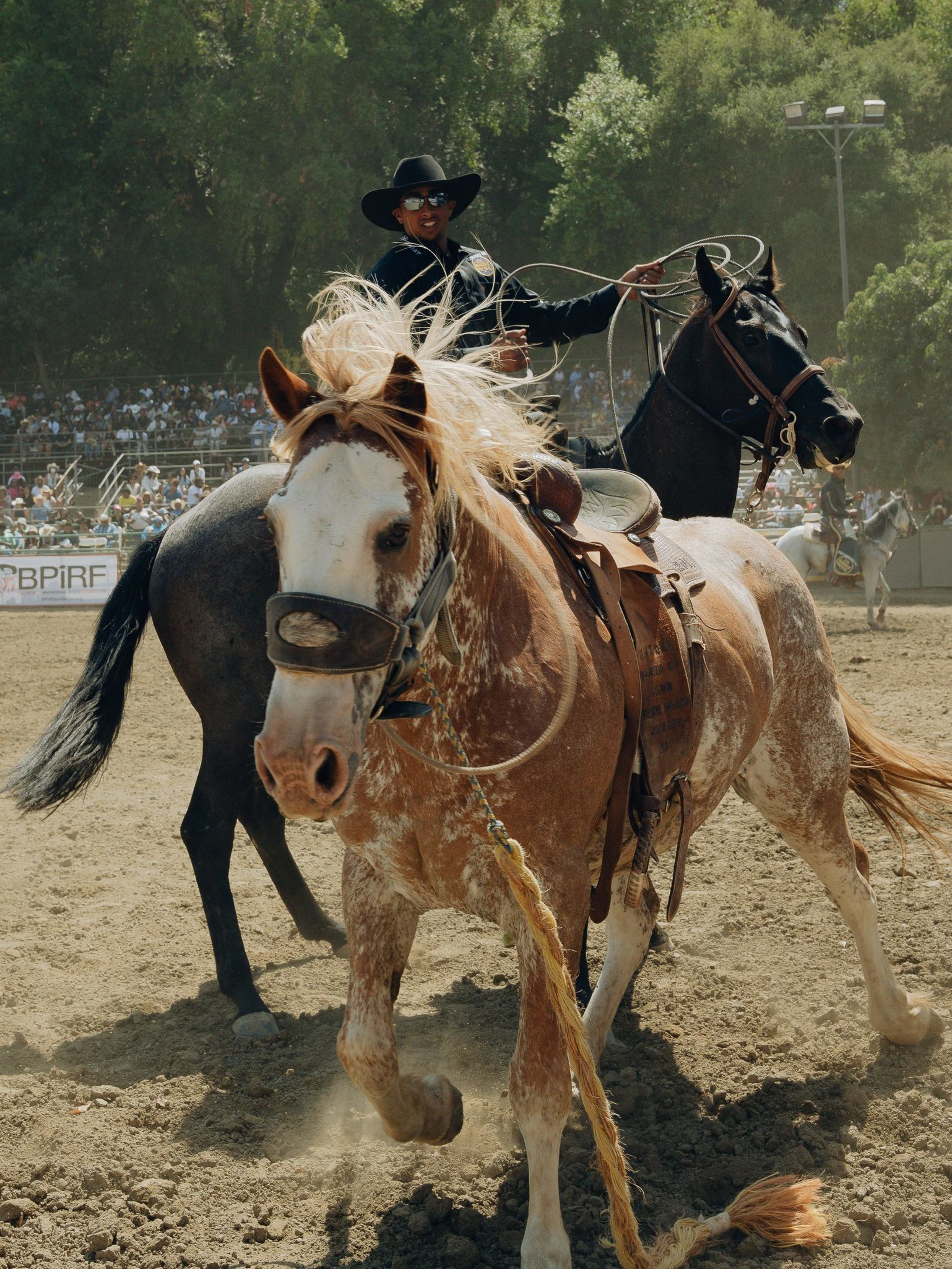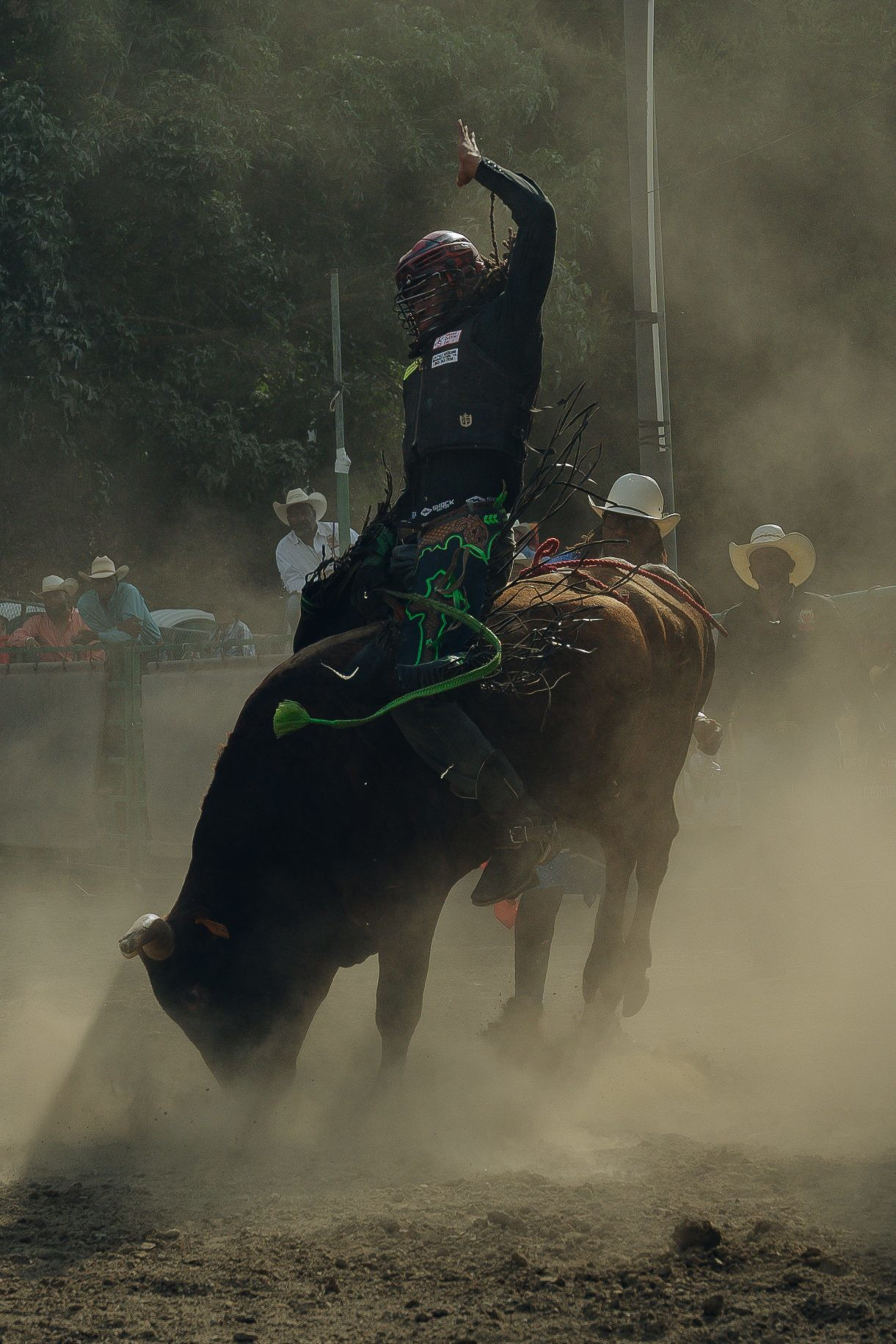Brightly colored cowboy hats bobbed through the crowd as dust swirled around bales of hay at the Rowell Ranch Rodeo in Castro Valley this weekend. Spectators turned out by the thousands for the 40th Anniversary Bill Pickett Invitational Rodeo, a multi-competition, all-Black event founded by Bay Area native Lu Vason.
The day’s events, set to a classic California hip-hop playlist featuring Oakland rappers Mac Dre and Guapdad 4000, included bulldogging, barrel racing, bareback riding and the showstopper: bull riding.

Derion Chavis, a 22-year-old bareback rider from Modesto, has been traveling with the Bill Pickett rodeo for the last 10 years and kicked off the day’s events with an electric performance. He followed it with a series of cartwheels and backflips, eliciting roars from the crowd.
Chavis rides bareback horses for rodeos as a full-time job.
“A horse is a horse, a bull is a bull and a rodeo’s a rodeo, but this one is just cultural and I love it,” Chavis said. “The crowd is phenomenal here and when they engage and get to making noise, it makes us go 10 times harder.”

The rodeo—which travels on a circuit from Atlanta to the East Bay—serves as a reminder of the role African Americans have played in shaping the distinct sports and culture of the American West.
Vason, the event’s founder, worked around the Bay Area as a civil rights activist, music promoter and cowboy throughout the second half of the 20th century. On a trip to Cheyenne in the early 1980s for one of the largest rodeos in the country, Vason was shocked to find that Black cowboys were nowhere to be seen (opens in new tab). In 1984, he founded an all-Black rodeo now run by a staff of 95% Black women, said Jeff Douvel, the event’s Oakland coordinator.

Despite being involved in rodeo for decades, Black cowboys were often relegated to performing before or after the main events. They frequently faced the same hostile conditions on the road as other Black performers.
“Over the last 40 years, we’ve spent all that time educating not only the American public but people abroad to correct the myth that there were no Black cowboys to begin with,” Douvel said.

As the day’s events commenced, stablehand Kevin Gomez took to his horse, Junior. A Sacramento native, Gomez moved to San Antonio, Texas, when he was 22 to work as a helping hand wherever he could at local rodeos. He said the Bill Pickett Invitational Rodeo offers a rare opportunity for Black people in California to take part in an iconic Western cultural form.
“I got teased a lot, often from people of the same color,” Gomez told The Standard. “Something sparked in my head, like ‘I know there’s more of us out there.'”

He works a full-time job in Sacramento, and when his shift is over, he drives to Woodland to care for his horse, Junior, until nightfall.
“Horses have that majestic sense about them that a human can connect deeply to,” said Gomez. “It’s still crazy to see all these African Americans in cowboy hats and Western culture. It’s like, damn, I found family.”















